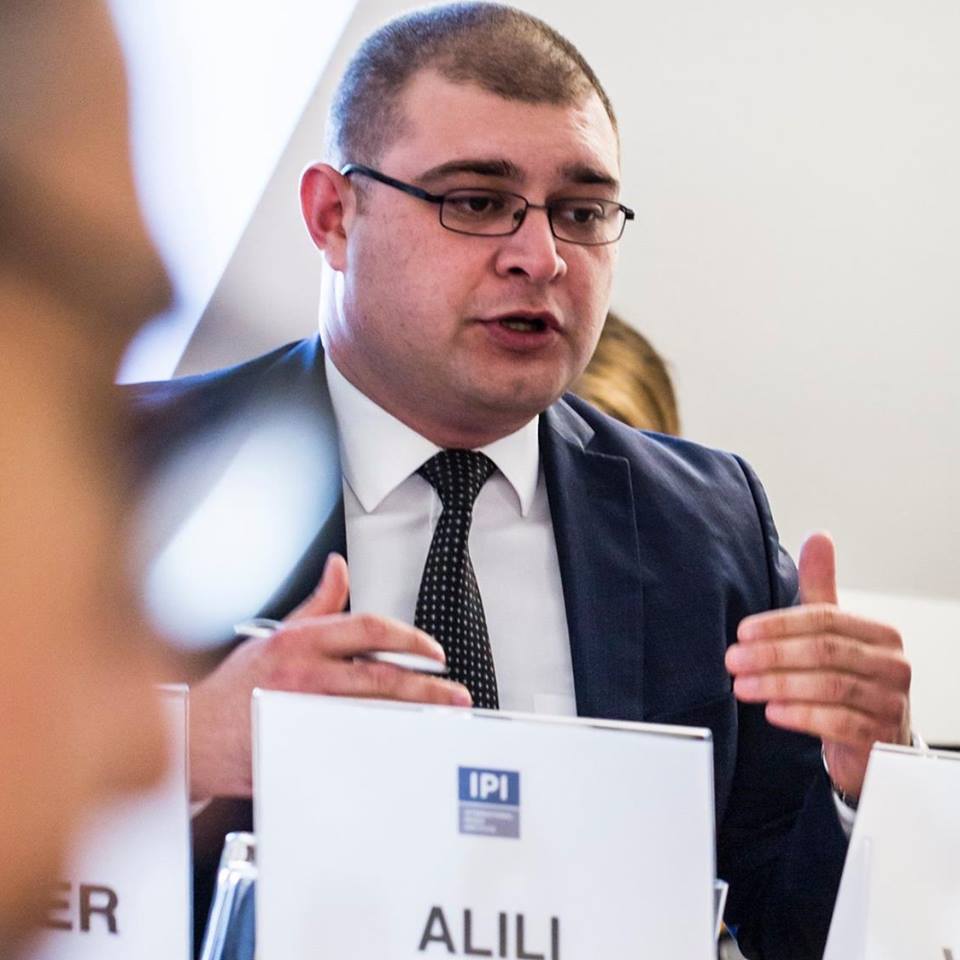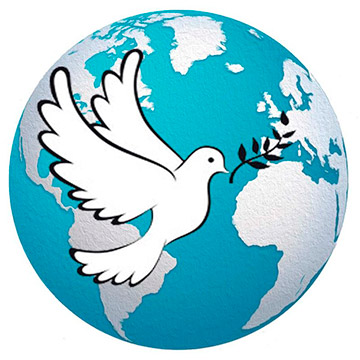
New US National Security Strategy and Implications for Armenia  By Benyamin POGHOSYAN, PhD, Chairman, Center for Political and Economic Strategic Studies By Benyamin POGHOSYAN, PhD, Chairman, Center for Political and Economic Strategic Studies
On October 12, 2022, the White House published President Biden’s first national security strategy. The document outlines the US’ primary goals for domestic and foreign policy and its future vision for the world. US national security strategies have been published every four years since the early 2000s, laying out the incumbent administration’s policy goals and strategic priorities. The 2002 and 2006 national security strategies were focused on the war on terror and democracy promotion. The Obama administration, while emphasizing democracy promotion, started to refocus the US’ attention on the Asia-Pacific region. Meanwhile, due to the 2014 Ukraine crisis, the February 2015 national security strategy included harsh rhetoric toward Russia. In December 2017, President Donald Trump focused his national security strategy on great power competition and US rivalry with China READ MORE
- EGF Editor |
Published on EGF: 21.10.2022
| Security
-
Armenia and Azerbaijan Prepare to Make Peace
  By Ahmad ALILI, Director, Caucasus Policy Analysis Centre, Baku By Ahmad ALILI, Director, Caucasus Policy Analysis Centre, Baku
Benyamin POGHOSYAN, PhD, Chairman, Center for Political and Economic Strategic Studies, Yerevan
On 31 August 2022, the leaders of Armenia and Azerbaijan, meeting in Brussels under the auspices of European Council president Charles Michel, agreed to authorise their foreign ministers to start immediate negotiations on a peace treaty. Instead, in less than two weeks, the two sides found themselves negotiating yet another ceasefire.
Armenia and Azerbaijan are slowly emerging from a long period of conflict. Over three and a half decades, tens of thousands died in fighting; hundreds of thousands of people were displaced; tens of thousands of landmines and other unexploded ordnance contaminated huge tracts of territory, and war and enmity became the standard narrative with both Armenians and Azerbaijanis. The 1st Karabakh War in the early 1990s resulted in massive loss of territory by Azerbaijan; the 2nd Karabakh War in autumn 2020 changed the reality on the ground for the second time, nearly, but not completely, restoring the status quo ante.
READ MORE
- EGF Editor |
Published on EGF: 12.10.2022
| Security
-
Armenia–India Relations: From Politics to Arms Trade  By Yeghia TASHJIAN, Beirut-based regional analyst and researcher, columnist, "The Armenian Weekly” By Yeghia TASHJIAN, Beirut-based regional analyst and researcher, columnist, "The Armenian Weekly”
During my academic visit to New Delhi in February 2020, I met with Indian politicians and scholars and discussed opportunities for upgrading Armenian-Indian relations. While back then the idea of arms trade was still immature, I raised the issue of defence cooperation between the two countries. Through honest discussions about the Armenian cause, I came to a conclusion, which I summarized in a November 2020 article for the Armenian Weekly. Despite today’s tumultuous climate in Armenia, it’s reassuring to learn that this 2020 recommendation has materialized, and bilateral ties are taking military and strategic dimensions. READ MORE
- EGF Editor |
Published on EGF: 12.10.2022
| External Relations
-
Is Pashinyan-Erdogan Meeting Enough to Stimulate the Armenia-Turkey Normalisation?  By Benyamin POGHOSYAN, PhD, Chairman, Center for Political and Economic Strategic Studies By Benyamin POGHOSYAN, PhD, Chairman, Center for Political and Economic Strategic Studies
The first face to face meeting between Armenian prime minister, Nikol Pashinyan, and Turkish President, Recip Tayip Erdogan, took place in Prague on 6 October, on the margins of the summit of the European Political Community. Whilst in the summer there was hope of an early breakthrough in the Armenia-Turkey normalisation, decisions agreed by the special envoys of the two countries have not been implemented. May this latest meeting stimulate normalization, or further work in the process of building confidence and trust is required?
The first week of October 2022 was marked by intensive diplomacy around the geopolitics of the South Caucasus. The September 13-14, 2022, Azerbaijani aggression against Armenia threw the region back to the brink of a new large-scale war. It seemed that months-long Armenia – Azerbaijan negotiations facilitated by the European Council President Charles Michel were fruitless. However, despite bleak predictions, a new wave of diplomatic activity was launched immediately after the ceasefire was reached on September 14. READ MORE
- EGF Editor |
Published on EGF: 12.10.2022
| External Relations
-
The CSTO and Azerbaijan’s recent aggression against Armenia  By Benyamin POGHOSYAN, PhD, Chairman, Center for Political and Economic Strategic Studies By Benyamin POGHOSYAN, PhD, Chairman, Center for Political and Economic Strategic Studies
Azerbaijan launched a new, large-scale aggression against Armenia on September 13, and the absence of tangible actions by the CSTO to stop Azerbaijan’s attacks have reinvigorated discussions in Armenia about the country’s potential withdrawal from the CSTO. This recent wave of public discontent in Armenia about the CSTO coincided with a visit to Armenia by U.S. House Speaker Nancy Pelosi, which added a geopolitical component to the discussions, given the complete rupture of relations between the United States and Russia. On the very day of Azerbaijan’s aggression, Armenia officially appealed to the CSTO, based on article 4 of the treaty, asking for support, including by military means. READ MORE
- EGF Editor |
Published on EGF: 05.10.2022
| Security
-
Beware of Americans Bearing Gifts  By Benyamin POGHOSYAN, PhD, Chairman, Center for Political and Economic Strategic Studies By Benyamin POGHOSYAN, PhD, Chairman, Center for Political and Economic Strategic Studies
The visit of Nancy Pelosi to Armenia created quite a lot of hype, since some saw in it the prospects for national salvation. But the visit's "democracy vs authoritarianism agenda" is risky for Armenia. Armenia should send clear signals to Russia and Iran that it has no intention to join the “democracy vs. authoritarianism fight” and will never allow anyone to use its territory for anti-Iranian or anti-Russian activities.
On September 17, 2022, Nancy Pelosi, the US House of Representatives speaker, arrived in Armenia for a three–day visit. She was the highest-ranking US official to visit Armenia since the country got its independence in 1991. The visit was agreed upon weeks, if not months in advance, but it took place only a few days after Azerbaijan had launched a new aggression against Armenia on September 13, 2022. The ceasefire was reached in late September 14 through the active mediation efforts of Russia, the US, and other external players. However, these hostilities overshadowed the visit. READ MORE
- EGF Editor |
Published on EGF: 27.09.2022
| External Relations
-
The Geopolitical Background of Azerbaijan’s Aggression on Armenia  By Yeghia TASHJIAN, Beirut-based regional analyst and researcher, columnist, "The Armenian Weekly” By Yeghia TASHJIAN, Beirut-based regional analyst and researcher, columnist, "The Armenian Weekly”
Last week’s aggression by Azerbaijan on Armenia should be viewed from a regional lens, as the conflict imposes a new geopolitical reality not only on Armenia, but also Iran and the wider South Caucasus.
On September 10, 2022, the Defence Minister of Azerbaijan instructed his army to maintain combat readiness to “suppress any Armenian provocations.” Not surprisingly, three days later, Baku launched a full-scale aggression on Armenia’s eastern border, concentrating on Jermuk and using special forces, Israeli and Turkish-made drones and artillery strikes against military and civilian targets. Consequently, Azerbaijan occupied strategic positions near the border, exerting pressure on Armenia’s narrow southern region. The aim of this military operation was to enter Jermuk and force the authorities of Yerevan into another “capitulation.” READ MORE
- EGF Editor |
Published on EGF: 27.09.2022
| Security
-
Post-Soviet Peace: We Demand Peace  An open letter signed by people from Armenia, Azerbaijan, Russia, Turkey, and other countries An open letter signed by people from Armenia, Azerbaijan, Russia, Turkey, and other countries
We, a group of people who stand for peace, from the post-Soviet space and its neighbourhood exhausted by never-ending wars and growing imperialist rivalry on our territories, are full of rage as we have observed Azerbaijan’s recent large-scale attack on Armenia. This, coupled with Russian Federation’s attack on Ukraine and the renewed military clashes in border areas between Kyrgyzstan and Tajikistan, raises heavy concerns regarding possible future escalations not only in the Armenia-Azerbaijan conflict but all other conflicts in the post-Soviet space.
The recent attack on Armenia has costed hundreds of lives within two days from both sides of the conflict, caused serious destruction to civil infrastructure in Armenia, displaced thousands, and further widened the gap between the countries and their people. We raise our persistent voices against the continuing warfare. READ MORE
- EGF Editor |
Published on EGF: 27.09.2022
| Security
-
The Ups and Downs in Iran Nuclear Deal Negotiations  By Benyamin POGHOSYAN, PhD, Chairman, Center for Political and Economic Strategic Studies By Benyamin POGHOSYAN, PhD, Chairman, Center for Political and Economic Strategic Studies
Since April 2021, Iran and other signatories of the 2015 nuclear deal (commonly known as JCPoA) have been engaged in active negotiations to restore it. President Biden’s administration declared its intention to move forward in that direction almost immediately after coming to power in January 2021. Many representatives of the Obama administration, who were personally involved in the negotiations from 2013 to 2015, received new positions in the Biden administration, and their desire to restore what they achieved in 2015 was quite understandable. Besides personal motives, the two and half years of the “maximum pressure campaign” against Iran launched by President Trump did not bring any tangible results. READ MORE
- EGF Editor |
Published on EGF: 20.09.2022
| Security
-
The Samarkand SCO Summit As A Platform For Dialogue And Fostering Mutual Trust  By Faridun Sattarov, PhD, DSc, University of World Economy and Diplomacy, Uzbekistan By Faridun Sattarov, PhD, DSc, University of World Economy and Diplomacy, Uzbekistan
On September 15-16 of this year, 14 heads of state are expected to attend the summit of the Shanghai Cooperation Organization (SCO), which will be held in Samarkand, Uzbekistan. This event will be the first face-to-face meeting of SCO leaders since 2019 and will conclude Uzbekistan’s presidency of the organization.
In addition to the leaders of the SCO member states, which include Russia, China, India, Pakistan, Uzbekistan, Kazakhstan, Kyrgyzstan, and Tajikistan, the summit will host the presidents of Iran, Belarus, and Mongolia as observers, as well as the heads of Turkey, Armenia, Azerbaijan, and Turkmenistan as invited guests.
READ MORE
- EGF Editor |
Published on EGF: 14.09.2022
| External Relations
-
|
|
